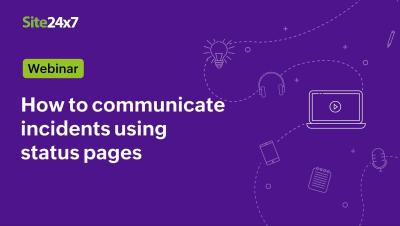Operations | Monitoring | ITSM | DevOps | Cloud
Incident Management
The latest News and Information on Incident Management, On-Call, Incident Response and related technologies.
Templates for Automating Incident Response
Optimizing Resource Scheduling and Planning in Healthcare
The pandemic has exacerbated the staff shortage in healthcare, placing a disproportionate burden on the industry, and underscoring the significance of effective resource scheduling. While resource scheduling encompasses the allocation of healthcare staff and physical resources and assets, in this blog, our primary focus will be on healthcare staff. Resource scheduling plays a vital role in ensuring the smooth operation of healthcare facilities.
BigPanda-Cribl Integration: Stronger actionable insights within your observability data
Overwhelming volumes and varieties of observability data most businesses encounter on a daily basis is impossible for IT operations teams to manually sift through successfully. This can be a troubling reality when frequent high-value business data is required to consistently maintain the uptime and integrity of your services and applications.
July 2023 Update - New user management, Duty stand-ins, incident response in voice-calls and simplified SSO
User July update includes a new and optimized user management in the web portal and a new feature in the duty scheduler, which allows to easily create stand-ins for scheduled duty personnel. Furthermore, it is now possible to acknowledge or close Signls directly during the call. As always, all details can be found in this blog article.
How to communicate incidents using status pages
Unveiling Multibot, the "glue" for enterprise workflows
User Performance Report - xMatters Support
The Unplanned Show, Episode 5: DataOps with Snowflake
Critical Incident Management - Roles and Responsibilities
Critical Incident Management is designed to handle disruptive and unexpected events that threaten to harm an organization or its stakeholders. These incidents range from cyber attacks and system failures to natural disasters and global pandemics. The importance of critical incident management cannot be overstated, as it is a pivotal process that maintains business continuity and ensures smooth operations despite adversities.









